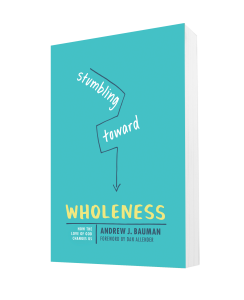Grief requires us to acknowledge and surrender to our throbbing, it is easy to have contempt for this reality and deny its invitation into our lives. I would argue for grief’s essential role in our lives as the 16th-century mystic/poet Rumi stated, “Grief is the doorway to God.” If we deny grief, we deny the very God of our universe. We must give permission for grief to take residence in us and bless its occupation in our lives.
The British poet Denise Levertov, writes a powerful imagery of grief taking up residence in our homes:
Ah, Grief, I should not treat you
like a homeless dog
who comes to the back door
for a crust, for a meatless bone.
I should trust you.
I should coax you
into the house and give you
your own corner,
a worn mat to lie on,
your own water dish.
You think I don’t know you’ve been living
under my porch.
You long for your real place to be readied
before winter comes. You need
your name,
your collar and tag. You need
the right to warn off intruders,
to consider
my house your own
and me your person
and yourself
my own dog.
Inviting grief to take residence in us does not mean we are excited about its arrival. No. We rebel, and we still fight with its harsh realities, we curse, we pray, and somehow simultaneously we surrender.
Grief reminds us the world is not the way it’s supposed to be
We live in a fallen, broken world. If you live on this earth long enough you will taste the sour stench of death, a heartache marred by infidelity and violence. Grief has been with us the entire time. Why resist what is already true? If you haven’t suffered immense loss or betrayal, you will. If you open your heart and surrender your life to God, you must feel the depth of what it means to be fully human. We all know ache; it is only fitting to acknowledge what your body already knows to be true.
If we deny grief, we deny the very God of our universe. We must give permission for grief to take residence in us and bless its occupation in our lives.
Tweet
It will feel like death because, in one sense, facing your deepest grief is death. The temptation will be to try and resist your crucifixion. It’s okay if you are fearful to face your own death, Jesus was. In the garden of Gethsemane, he said, “Father, if it is possible, let this cup pass from Me.” (Matthew 26:39) Jesus’s soul was “deeply grieved to the point of death” (Matthew 26:38), looking for any way out of the agony that was to come. But Jesus knew who he was and the liberation that He was meant to bring. Though our choice to face our own death stories will not bring the possibility of salvation for an entire world it will help set others free and must be fought for.
So my next question is, how do you want to die? Do you want a slow suicidal death from cowardly denial of your own heartache or a bold death from courageously facing it? You will be dead either way, how do you want to go out? I would far rather die with courage than being a coward. Most days, I choose courage, to die swinging my sword at the darkness rather than allowing it to envelop me.
What about you? Where in your story have you yet to grieve?
What is your terror to face your greatest heartaches?
Where in your story feels like a death?
Where do you need to ask God to grant you courage to face within?



